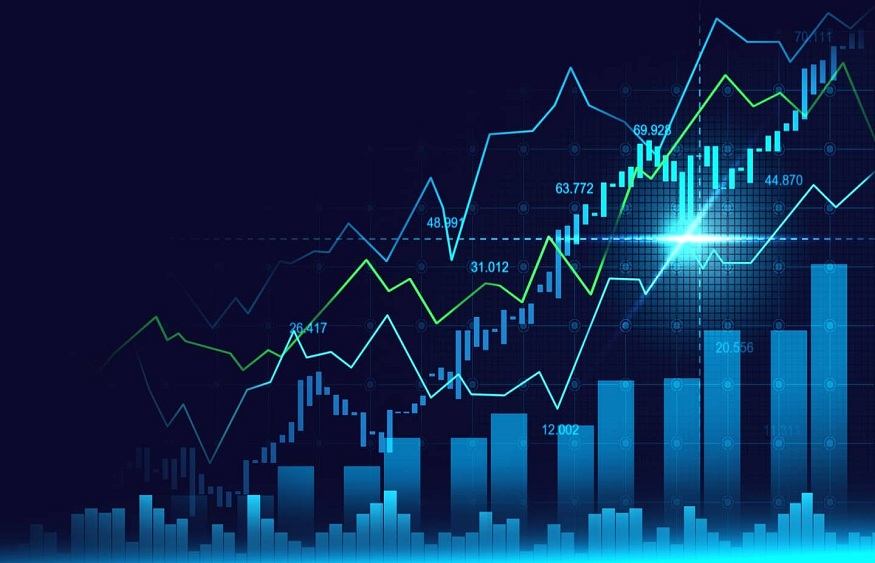In the fast-paced world of finance, two trading instruments have gained significant recognition among investors: forex and futures trading. These financial instruments provide unique opportunities to diversify investment portfolios and potentially maximise returns.
Forex trading in Asia, also known as foreign exchange trading, involves trading, buying, and selling currencies. It operates on a decentralised global market, allowing traders in Asia to take advantage of fluctuations in exchange rates. This market is open 24 hours a day, five days a week, making it highly accessible and offering ample trading opportunities.
On the other hand, futures trading involves trading or buying and selling contracts for the future delivery of commodities or financial instruments. These contracts specify the quantity and price of the underlying asset and the delivery date. Futures trading is often used to hedge against price fluctuations and manage risks associated with commodities, such as crude oil, natural gas, or agricultural products.
Understanding the differences between forex and futures trading is crucial, especially for traders in Singapore. It allows traders to make informed investment decisions based on their risk appetite, market knowledge, and investment goals. By carefully considering these factors, traders can navigate the complexities of the Asian financial markets and achieve success in their trading endeavours.
Forex trading in Singapore
Forex, short for foreign exchange trading, is a dynamic financial market where participants buy one currency while simultaneously selling another. This global market operates 24/7 and boasts unparalleled liquidity, with daily trading volumes exceeding five trillion dollars. I
The forex market in Asia is the backbone of international trade and investment, facilitating seamless currency exchange for businesses and individuals worldwide. Singapore has emerged as one of Asia’s premier forex trading hubs within this vast ecosystem, renowned for its robust and well-regulated financial infrastructure.
Advantages of forex trading
One advantage of forex trading is its 24-hour market, providing traders with continuous opportunities to engage in transactions. This around-the-clock availability allows individuals from different time zones to participate, increasing the market’s global reach.
The high liquidity in forex markets ensures that buy and sell orders can be executed swiftly and efficiently, minimising the risk of price manipulation and enhancing overall market transparency.
Futures trading in Singapore
On the other hand, futures trading is a contractual agreement to trade, buy, or sell a specific asset at a predetermined price at a specified time. This type of trading offers various possibilities, as the assets traded can vary from commodities like oil and gold to indices like the S&P 500 or NASDAQ and even currencies like the US dollar or Euro.
Singapore’s futures market is renowned for its well-developed infrastructure, with the Singapore Exchange (SGX) providing a broad array of futures contracts for trade, catering to the diverse needs of Asian investors and traders alike. With its robust regulatory framework and liquidity, the SGX futures market has become preferred for those seeking exposure to various asset classes and looking to manage risk effectively.
Advantages of futures trading
Futures trading is a financial instrument that offers investors the opportunity to hedge against market volatility, providing financial security. Investors can mitigate potential risks and uncertainties associated with fluctuating market conditions by entering into futures contracts.
Their standardisation makes futures contracts even more attractive. This standardised framework ensures transparency and fairness, allowing for efficient price discovery and seamless execution of trades. Overall, futures trading offers a robust mechanism for investors to manage risk and optimise their investment strategies in an ever-changing market landscape.
Key differences
One of the primary differences between forex and futures trading lies in the underlying asset. In forex trading, the focus is on currencies, allowing traders to speculate on the exchange rates between different currencies. On the other hand, futures trading encompasses a broader range of assets, including commodities, indices, and even cryptocurrencies.
In addition to the difference in underlying assets, another key distinction is the trading hours. Forex markets worldwide operate 24 hours a day, five days a week, allowing Singaporean traders to participate at any time. In contrast, futures markets are typically bound by the operating hours of the specific exchange on which they are traded, which can vary depending on the asset and the region.
The two markets differ in terms of liquidity. The forex market is known for its high liquidity, mainly due to its massive trading volumes and the involvement of central international banks. This high liquidity ensures that traders can quickly enter and exit positions without impacting the market. In contrast, futures markets may have varying levels of liquidity depending on the specific asset being traded.
The bottom line
Both forex and futures trading offer unique advantages and opportunities for investors in Singapore. Deciding between the two ultimately hinges on an investor’s financial goals, risk tolerance, and trading strategy. It’s essential to thoroughly research and understand these financial instruments before diving into trading. Both markets come with inherent risks and the potential for significant financial loss if not properly navigated.



